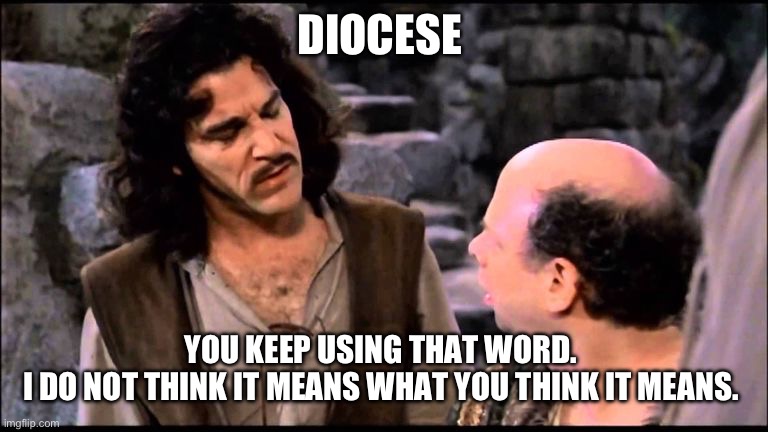
The word “diocese” has come to be short hand for “lawyers employed by the diocesan administration under the governance of the bishop.”
This is a problem because it confuses the faithful. It obfuscates the truth and makes it easier for bishops to abandon their pastoral duties under the guise of not having ultimate responsibility for governance.
What is a diocese? It’s basically the bishop’s parish. A “diocese” is defined by Church law as “a portion of the people of God which is entrusted to a bishop for him to shepherd with the cooperation of the presbyterium, so that, adhering to its pastor and gathered by him in the Holy Spirit through the gospel and the Eucharist, it constituted a particular church in which the one, holy, Catholic, and apostolic Church of Christ is truly present and operative.”
And what really is this bishop to whom this portion of the people of God is entrusted? Church law has an answer here also. Bishops are successors to the Apostles by divine institution through the Holy Spirit and so are “constituted pastors in the Church, so that they are teachers of doctrine, priests of sacred worship, and ministers of governance.”
It is so important that a bishop be able to fulfill his essential duty as successor to the Apostles that he is recognized as having all “proper and immediate power” to exercise his pastoral function.
The bishop, of course, relies on pastors to help him fulfill his duties. A pastor of a local parish is specifically required to “strive to know the faithful entrusted to his care” in order to diligently fulfill his office.
A pastor is to “recognize and promote the proper part which the lay members have in the mission of the Church. A pastor is to cooperate with the bishop, “working so that the faithful have concern for parochial communion, consider themselves members of the diocese and of the universal Church, and participate in and sustain efforts to promote this same communion.”
In short, a diocese is a particular church of churches pastored by the bishop, and the bishop relies on local pastors of churches to make sure that the people know that they are part of the diocese.
Why do these words matter? Because words have consequences. Our misuse of words shapes our improper behavior and causes confusion regarding what is right and wrong.
When we take the title of “diocese” from the people of God and give it to civil lawyers, we turn away from the guidance given to us by Holy Mother Church. When we reduce a “diocese” to lawyers, we abandon the order of governance which is specifically designed to facilitate the good of the people of God. We also risk inverting the proper order and ending up with impossible situations such as a bishop denying responsibility for his behavior as a teacher, priest, and governor and saying that he is speaking as instructed by the diocese.